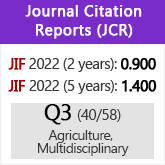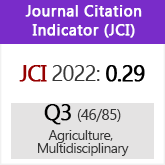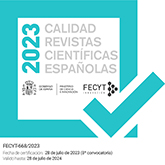Innovations favouring environmental sustainability in avocado orchards: an analysis of the Spanish Mediterranean coastlands
Abstract
Avocado cultivation started to take hold on the Southern Spanish Mediterranean coast in the early 1970s. Today, avocado is the most widespread tropical crop in the area, occupying some 8,350 ha; average annual production is around 70,000 Mg. In recent years, several technological innovations have been adopted by avocado growers, some of which favour the environmental sustainability of the crop. Among the practices adopted are several non-tillage or conservation tillage techniques (which use no or very little herbicide), flower pruning, the use of weed clearing machines, mulching, and organic and integrated farming systems. This paper reports the results of a survey of avocado growers from the southeastern coast of Spain, and analyses their adoption of environmentally friendly technologies. To identify the grower and orchard characteristics that encourage such adoption, an aggregate innovation index was created and a multinomial ordered probit model constructed. The findings might help in the design of strategies for increasing the adoption of environmentally safe technologies.Downloads
© CSIC. Manuscripts published in both the printed and online versions of this Journal are the property of Consejo Superior de Investigaciones Científicas, and quoting this source is a requirement for any partial or full reproduction.
All contents of this electronic edition, except where otherwise noted, are distributed under a “Creative Commons Attribution 4.0 International” (CC BY 4.0) License. You may read here the basic information and the legal text of the license. The indication of the CC BY 4.0 License must be expressly stated in this way when necessary.
Self-archiving in repositories, personal webpages or similar, of any version other than the published by the Editor, is not allowed.















